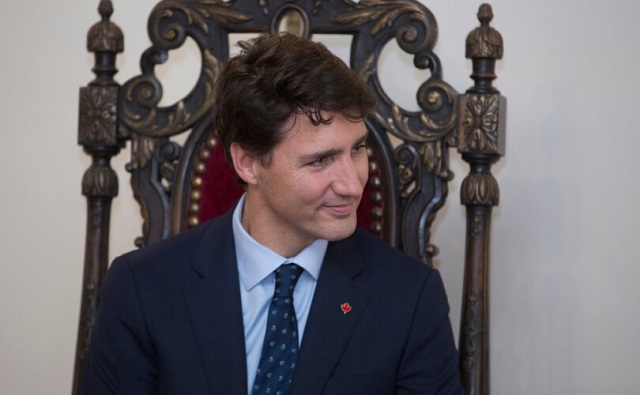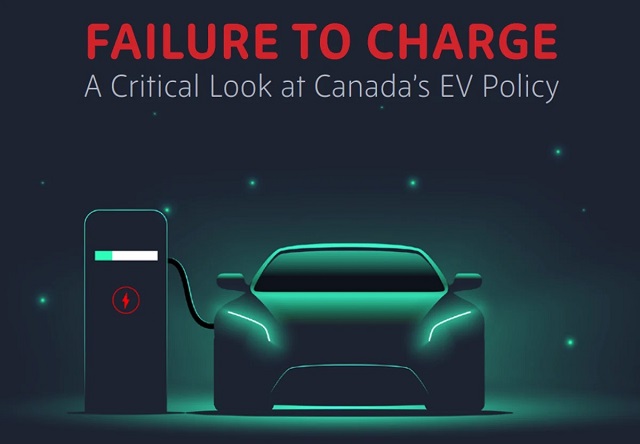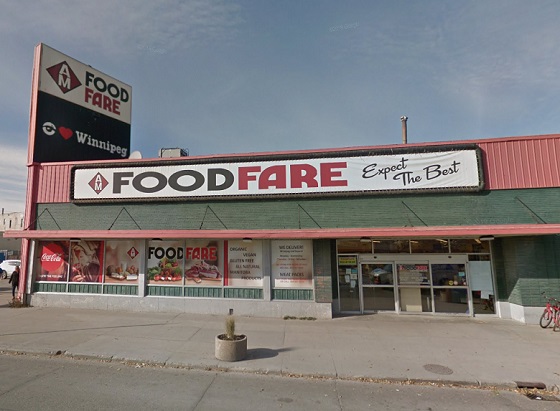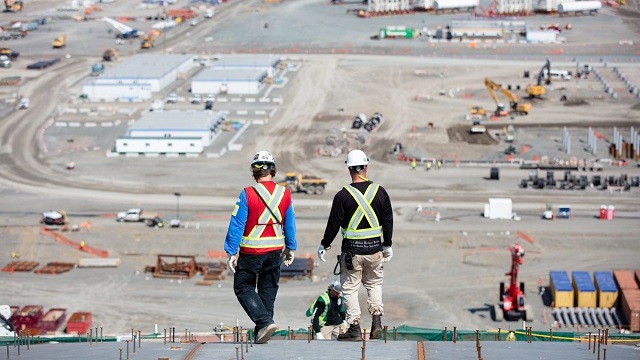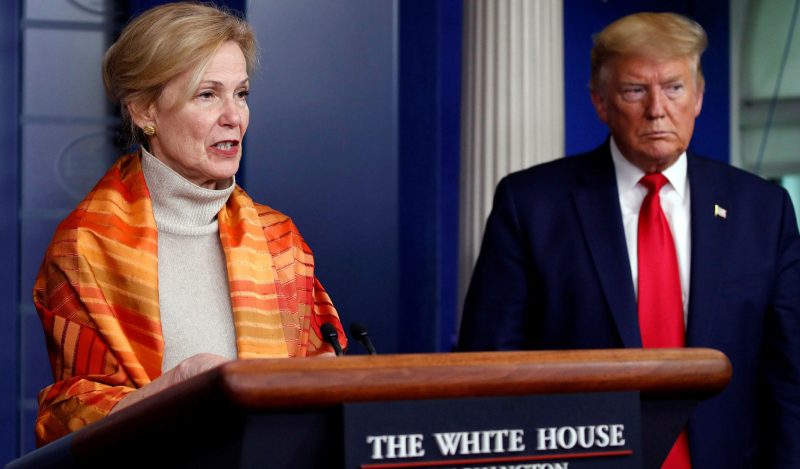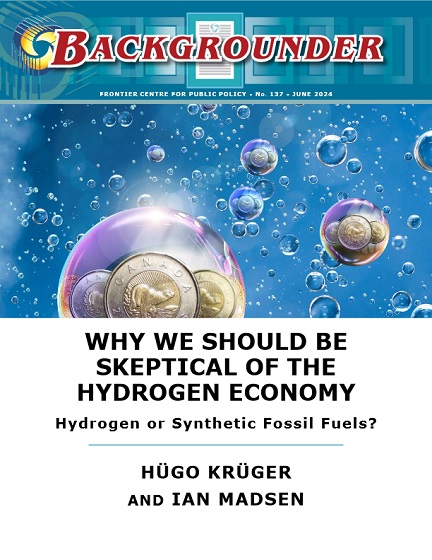Dan Knight
Bank of Canada’s Band-Aid on a Bullet Wound
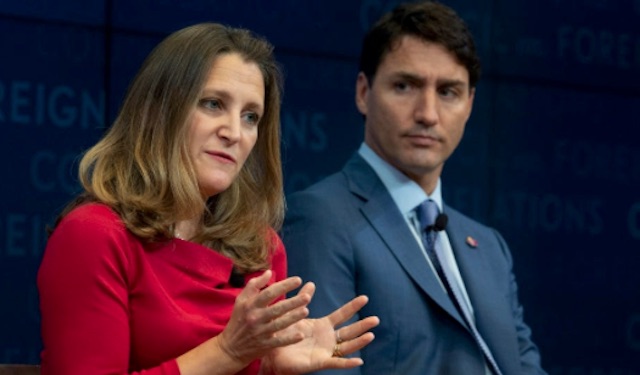
This article is from The Opposition With Dan Knight substack. |
|
The Hidden Tax of Trudeau’s Policies: Why Canadians Can’t Afford to Ignore the Real Culprits Behind Inflation and Economic Woes
Good morning, Canada. If you paid attention to yesterday’s announcement from the Bank of Canada, you’ll know they maintained their policy rate at 5% while continuing their quantitative tightening. But what you may not realize is how this is really just putting a band-aid on a bullet wound—a wound inflicted largely by the policies of our Prime Minister, Justin Trudeau.
Firstly, let’s talk about inflation. This is not just an abstract concept or economic jargon; it’s a tax—a silent, insidious tax that drains your income, reduces your purchasing power, and makes your life more expensive. The Bank of Canada admits that inflationary pressures remain broad-based, and that’s no surprise when Trudeau’s administration is running up deficits in the billions. His fiscal irresponsibility is supercharging inflation, and it’s Canadians like you and me who are paying the price.
But Trudeau’s policies don’t just stop at fiscal mismanagement; they’re also significantly impacting the housing market. Trudeau’s indiscriminate approach to immigration is driving up demand for housing, while doing little to increase supply. What we end up with are skyrocketing home prices, which are pushing the dream of homeownership further away for everyday Canadians. The recent economic data confirms this grim reality; the Canadian economy contracted at an annualized rate of 0.2%, yet housing prices are inflated beyond reason.
Now let’s talk about the carbon tax. This is a policy that has done nothing but raise the cost of living for Canadians across the board. Whether you’re filling up your car, heating your home, or buying groceries, Trudeau’s carbon tax makes everything more expensive. Even the Bank of Canada’s report highlights the impact of recent increases in gasoline prices on consumer price inflation. It’s absurdly hypocritical that while Trudeau preaches about justice and equality, he’s willing to burden Canadians with policies that make life unaffordable for many.
So, when the Bank of Canada says it’s holding its policy rate steady at 5% and continuing to normalize its balance sheet, don’t be fooled. These are not solutions; they’re temporary measures that might alleviate some of the symptoms but do nothing to treat the cause. Trudeau’s reckless deficit spending, his flawed immigration policy, and his ideologically driven carbon tax are the real driving factors behind our nation’s financial malaise. And no amount of “quantitative tightening” by the Bank can remedy the damage done by these policies.
In the end, it’s accountability that we need. While the Bank of Canada may be committed to restoring price stability, let’s not forget that the root cause of our economic instability lies squarely with Trudeau’s leadership. His financial recklessness is making life increasingly difficult for average Canadians, inflating everything from the cost of a loaf of bread to mortgage payments. The time for a course correction is now, and it starts by acknowledging the true source of our problems. This is the story you won’t hear in the mainstream media, but it’s one that all Canadians need to understand. This is Dan Knight, signing off from Vancouver. Stay vigilant, Canada.
#cdnpoli
Invite your friends and earn rewards
Click here to see more from The Opposition with Dan Knight.
For the full experience, upgrade your subscription.
Dan Knight
Trudeau’s $191 Million Scandal – Auditor General Exposes Rampant Cronyism with McKinsey Contracts
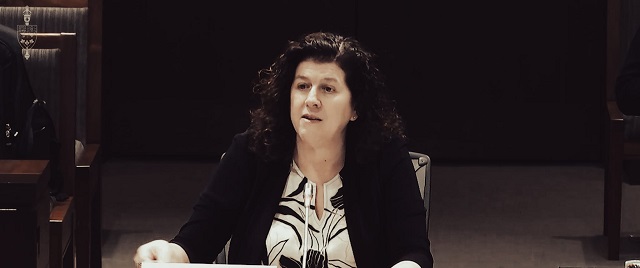
|
|
Auditor General’s Scathing Report Reveals Rampant Cronyism and Security Breaches—Conservatives Demands Accountability from Trudeau’s Inner Circle
In a stunning display of government largesse, Auditor General Karen Hogan dropped a bombshell at Meeting No. 128 of the Standing Committee on Government Operations and Estimates. Her report pulled back the curtain on a festering pit of crony capitalism under the Trudeau administration. Brace yourselves, folks, because what you’re about to hear is jaw-dropping.
Since 2015, contracts with the consulting firm McKinsey have skyrocketed to an eye-popping $191 million. Let that sink in for a moment. That’s a meteoric rise from a measly one million dollars in the years prior under Harper. So, what changed? Did McKinsey suddenly become a hundred times more competent, or does it have to do with whose in power?
Hogan’s report doesn’t dance around the issue. Oh no, it dives headfirst into the cesspool of corruption swirling around Trudeau’s inner circle. A staggering 70% of contracts with McKinsey were handed out non-competitively, totaling a mind-boggling $118 million. And if that wasn’t enough to make your blood boil, get this: almost half of these contracts lacked the necessary documentation to justify their existence. That’s right, folks, your tax dollars are being thrown around like confetti at a Liberal fundraiser, with little to no accountability.
But wait, it gets worse. Hogan’s audit uncovered a disturbing pattern of government departments using Crown corporations as their personal piggy banks to avoid pesky things like competitive procurement requirements. It’s crony capitalism 101, folks, and Trudeau’s minions are playing the game with gusto.
And as if all that wasn’t enough to make you reach for the pitchforks, Hogan also exposed shocking security breaches within government networks. Contractors were given access to sensitive information without the proper security clearances, putting the privacy of Canadians at risk. It’s a blatant disregard for basic security protocols that would make even the most amateur hacker blush.
But here’s the kicker, folks: despite all the damning evidence laid bare by Hogan’s report, there’s been nary a peep from Trudeau or his cronies about taking responsibility. It’s the same old song and dance we’ve come to expect from this government – sweeping corruption under the rug while hardworking Canadians foot the bill.
It’s high time for some accountability, and thankfully, not everyone in Ottawa is willing to let this scandal slide. Enter Conservative MP Stephanie Kusie. In a bold move to expose the deep-seated corruption within the Trudeau government, Kusie introduced a motion that promises to peel back the layers of deceit and cronyism surrounding the Prime Minister’s cozy relationship with McKinsey. This motion aims to call forth a comprehensive list of witnesses to further investigate the damning issues highlighted in Auditor General Karen Hogan’s recent report.
Here’s the rundown of the motion: Kusie is calling for appearances from:
- Dominic Barton, former Global Managing Partner of McKinsey
- Bob Sternfeld, current Global Managing Partner of McKinsey
- Boyan Gerasimov, former Engagement Manager at McKinsey and former Director of Policy to the Minister of Public Services and Procurement Canada
- McKinsey Canada officials responsible for securing government contracts
- The President of the Treasury Board and relevant department officials
- The Minister of Public Services and Procurement and relevant department officials
- Officials from the Department of National Defense, Immigration, Business Development Bank of Canada, Export Development Canada, Public Sector Pension Investment Board, Trans Mountain Corporation, and Canada Infrastructure Bank
Kusie’s motion is a clear message to Trudeau’s swamp dwellers: your time is up. The proposed list of witnesses is set to shine a light on the rampant favoritism and misuse of taxpayer dollars that have come to define Trudeau’s tenure. This move is not just about McKinsey, but about unearthing the broader patterns of misconduct and lack of transparency that permeate this administration.
But what did the Liberals do in response? They filibustered the motion by running out the clock of the committee. Typical. However, fret not, my dear readers. This motion is set to be debated on Wednesday. The Liberals can delay, they can obfuscate, but they can’t hide from the truth forever.
The stage is set for a monumental showdown that could finally bring Trudeau and his cronies to justice for their actions. This is about more than just contracts and dollars—it’s about the very soul of our nation. Canadians deserve a government that upholds the highest standards of integrity and transparency, not one that constantly betrays public trust.
The stage is set for a showdown that could finally hold Trudeau and his cronies accountable for their actions. Stay tuned, folks, because the battle for transparency and integrity in government is just heating up. The swamp-sucking Laurentian elite, led by Trudeau himself, might try to run, but they can’t hide forever. Come Wednesday, the Trudeau Liberals will face the music and answer for their rampant cronyism and corruption. It’s time for these elitists to pay the piper and for Canadians to reclaim their government.
Please consider a subscripion to The Opposition with Dan Knight .
Dan Knight
Randy Boissonnault Caught in Explosive Scandal – New Text Messages Expose Corruption at the Highest Levels
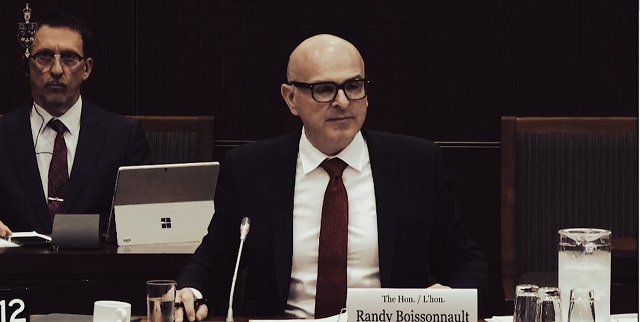
|
|
Minister denies involvement despite damning evidence; Ethics Commissioner and Conservative MPs demand full investigation into Liberal swamp’s latest cover-up
In an exclusive exposé reminiscent of a political thriller, troubling allegations have emerged involving Minister of Employment, Workforce Development, and Official Languages, Randy Boissonnault. Accusations swirl around Boissonnault’s potential business entanglements that could contravene both ethical standards and legal responsibilities, raising significant concerns about his tenure in federal office. As reported by Krista Hessey of Global News, an incendiary set of text messages has brought to light possible undisclosed commercial activities that might have continued well into his cabinet appointment, despite denials from the minister.
These texts, pivotal in this burgeoning controversy, suggest a clandestine involvement of Boissonnault with his former enterprise, Global Health Imports, long after his official disengagement was supposed to have been finalized. The messages in question detail interactions between Stephen Anderson, a co-founder of Global Health Imports, and Malvina Ghaoui of The Ghaoui Group, around substantial financial transactions pertaining to personal protective equipment. These dealings, and the minister’s alleged participation, are now under the scrutiny of the Ethics Commissioner Konrad von Finckenstein, promising to unravel a web of deceit at the intersection of public duty and private gain.
Text messages obtained by Global News have raised serious questions about whether Employment Minister Randy Boissonnault engaged in business dealings with his former partner, Stephen Anderson, long after assuming his federal cabinet position. These messages, exchanged in September 2022, suggest an ongoing involvement that Boissonnault vehemently denies.
In one critical exchange, Anderson communicated with Malvina Ghaoui, principal of The Ghaoui Group, LLC, a California-based PPE procurement company. During their conversation, Anderson referred to a person named “Randy,” stating that he was to “be available in 15 for a partner call.”
The context was a significant transaction involving a deposit of approximately $500,000 that Ghaoui Group was expected to send to Global Health Imports (GHI) to secure a large shipment of nitrile gloves. Anderson’s messages to Ghaoui reveal a sense of urgency and pressure to finalize the deposit.
One pivotal message allegedly from “Randy” reads:
“Anderson, it’s 13:14 MST and 15:14 EST it literally takes 10 seconds to complete a (wire) transfer. I am telling you we are NOT ALLOCATING like this, please reach out and see what the reason is now, you assured me this morning this was done first thing…Be available in 15 for a partner call.”
Shortly after, Anderson followed up with Ghaoui, mentioning another consultation with “Randy” and other GHI employees:
“I have spoken to Shawna, Felix and Randy again … We are following up again at 1440 on allocations and will determine what we need to do as an organization.”
This exchange raises the question: Was Minister Randy Boissonnault, despite his official duties and legal obligations to distance himself from GHI, still actively involved in its operations?
When confronted, Anderson ambiguously admitted to working with another “Randy,” identified only as the “head of logistics.” However, Global News could not verify the existence of this supposed second Randy. Interviews with former suppliers identified Edward Anderson, Stephen’s father, as the company’s logistics lead, casting further doubt on the legitimacy of Anderson’s claims.
Today, we witnessed a spectacle that has become all too familiar in the swamp of Canadian politics. Minister of Employment, Workforce Development, and Official Languages Randy Boissonnault took the stand at the Standing Committee on Access to Information, Privacy, and Ethics (ETHI) to defend himself against a barrage of allegations that paint a damning picture of corruption and conflict of interest.
Boissonnault, in his opening statement, insisted he has always followed his obligations under the Conflict of Interest Act. He claimed he worked diligently with the Office of the Conflict of Interest Commissioner, meticulously organizing his portfolio and placing his company, Venex, under third-party management by his long-time friend and former employee, Ms. Kirsten Kuhn. He made it a point to emphasize his transparency with the Ethics Commissioner’s Office about this arrangement. Yet, the very choice of Kuhn, a close personal friend, as the manager of his business interests, raises immediate red flags about impartiality and genuine compliance.
Boissonnault vehemently denied any lobbying activities, a preemptive strike against accusations that have circulated regarding his post-election dealings. He asserted that upon his 2021 election, he stepped down as director of Global Health Imports (GHI) and left it to the company to update the necessary federal and provincial business registries. According to him, it was only due to their delay that his lawyer had to step in and ensure compliance.
However, this narrative reeks of convenient excuses. Boissonnault’s denial of any role in GHI’s operations post-election does little to dispel the cloud of suspicion hanging over his head. The text messages between Stephen Anderson and Malvina Ghaoui suggest otherwise, pointing to potential involvement in business decisions long after his supposed resignation.
Adding to the intrigue, Boissonnault attempted to deflect the committee’s scrutiny by addressing allegations tied to Edmonton International Airport, a former client. He adamantly denied facilitating any meetings between the airport’s staff and other ministers’ offices, despite the airport receiving grants from the Department of Transportation and Prairie’s Can during his tenure. His defense here, while specific, fails to address the broader issue of his possible indirect influence and the apparent overlap between his political office and private business interests.
Conservative MP Michael Barrett, armed with pointed questions and a no-nonsense demeanor, sought to unravel the complexity of Boissonnault’s financial entanglements and his elusive connections with mysterious business figures.
The inquiry focused sharply on an entity simply known as “Randy” involved in dubious business communications. Barrett’s interrogation style was direct, asking for the last name of this “other Randy” mentioned in suspect text exchanges that had come to light. Boissonnault’s responses were evasive, encapsulating the political dance of deflection. “I do not know that person in question. That person is not me,” Boissonnault asserted, distancing himself from the shadowy figure central to the allegations of fraud.
As the cross-examination intensified, Barrett delved deeper into the minister’s financial stakes in GHI, pointing out Boissonnault’s significant ownership through a holding company. “Holding half of the shares?” Barrett pressed, seeking clarity amidst the minister’s convoluted explanations about share distributions and company administration. Boissonnault’s retort—“The shares are held by 2256956 Alberta Ltd.”—added layers to an already opaque situation, with the minister resisting straightforward answers about ownership and company partners.
The discourse turned heated when Barrett suggested the media’s portrayal of “Randy” was actually Boissonnault himself, based on information from Boissonnault’s business partner. The minister was quick to refute, leaning on a statement from the Gowrie Group to argue his non-involvement in operational matters since his election. Yet, Barrett’s relentless questioning painted a picture of a minister potentially running the clock on accountability, maneuvering through political loopholes to maintain a façade of innocence.
Barrett’s frustration with the proceedings was palpable, criticizing the unequal time given to Boissonnault’s responses compared to the succinctness of his questions. The committee chair had to intervene, underscoring the expectation of fairness and equal discourse, which seemed to slip as the minister used procedural tactics to dilute the impact of pressing inquiries.
As the minutes ticked down, Barrett’s final questions targeted the core of the allegations—Boissonnault’s involvement with the alleged wire fraud connected to the GOWI group. Again, Boissonnault took refuge in rehearsed lines of having had “no operational dealings with GHI since I was elected.”
MP Matthew Green zeroed in on the origins and operations of Boissonnault’s various business ventures, questioning the ethical implications of his continued involvement and the suspicious benefits reaped from his Liberal connections.
Green started with a straightforward inquiry, asking Boissonnault to clarify the nature of the new business he claimed to have created. Boissonnault, trying to downplay the situation, responded, “I didn’t create a new business, Mr. Green. I simply restarted my business, Venex, which is a management consultancy.” But Green wasn’t buying it. He pressed further, highlighting the lack of Boissonnault’s experience in procurement and PPE before the pandemic: “What experience did you have prior to this procurement that involved PPE and procurement?”
Boissonnault’s response was a muddled justification, citing his 15 years in business without directly addressing his specific experience with PPE or procurement. Green astutely pointed out the opportunistic nature of Boissonnault’s venture into procurement during the pandemic, implying that his relationships within the Liberal government might have smoothed the way. “Okay, so you got into procurement to take advantage of the opportunities that were presented in COVID, perhaps your relationships with the Liberal government,” Green remarked, cutting through the minister’s evasions.
The exchange grew even more pointed as Green delved into the specifics of the Gowrie Group’s allegations, which contradicted Boissonnault’s assertions of non-involvement. Green read from the article: “The article states in reference to the text that they mentioned around you. It is stated in this article that you’ve referenced to refute Mr. Barrett’s testimony… this doesn’t pass the sniff test.” Boissonnault, visibly perturbed, could only reiterate his denials, leaning on the Gowrie Group’s statements as his shield.
But Green’s skepticism was unrelenting. He highlighted the obvious contradiction: “There’s an obvious contradiction here that is public, and while it is true you may want to appear before this committee and act as though this is simply a Conservative witch hunt, I would tell you from my perspective as a New Democrat, this doesn’t pass the sniff test.
Conservative MP Michael Cooper took the reins in a scathing cross-examination of Minister Randy Boissonnault during the ETHI committee’s hearing on conflicts of interest. The topic at hand was Boissonnault’s elusive role and the mysterious “other Randy” at Global Health Imports (GHI), a situation that has embroiled the minister in a cloud of controversy and allegations of unethical conduct.
Cooper wasted no time, diving straight into the heart of the controversy. He questioned Boissonnault’s former title at GHI and his current lack of awareness about company operations, highlighting the absurdity of the minister’s claims of ignorance regarding the identity of the “other Randy.” The scene was set for a probing inquiry into the depth of Boissonnault’s detachment from GHI.
“Minister, you held the title of partner at GHI before you were elected, correct?” Cooper began, setting the stage with a direct question to establish Boissonnault’s past involvement. The minister’s response was vague, and he struggled to recall specifics, providing a shaky start to his defense.
Cooper, seizing the opportunity, pressed further on the small scale of GHI and Boissonnault’s significant stake in the company. His pointed questioning cornered Boissonnault: “And you mean to tell me that you have no idea out of a handful of people, if not you, who the other Randy is. Are you serious?” The implication was clear—how could Boissonnault, with such substantial involvement and stake, genuinely claim ignorance about key personnel?
As Boissonnault defensively reiterated his lack of operational involvement due to ethical constraints, Cooper’s skepticism grew. He brought up a compelling point about the timing of a text message, which was set in Eastern Standard Time—the time zone of Ottawa, where Boissonnault spends much of his time as a member of Parliament. This detail seemed more than coincidental, tying the minister geographically and temporally to the mysterious text exchanges.
Cooper’s relentless pursuit continued as he linked the pieces together for the committee. “So not only Eastern Time, Ottawa, also be available in 15 for a partner call. You said you had previously been a partner. Just another coincidence? Just another Randy?” The questions were like daggers, suggesting that the minister’s explanations were not just implausible but potentially deceitful.
Throughout the interrogation, Boissonnault’s responses became increasingly flustered. Cooper’s final blow was a stark accusation: “The GOWI group thinks it’s you. Global News can’t track down who the other Randy is. A Randy who’s texting happens to be referencing Eastern Time. You happen to be a member of Parliament serving a lot of your time in Ottawa. You said you were a partner. The text message references a partner. This is a small operation. You have a 50% stake in the fact that you can’t identify who the other Randy is, doesn’t pass the smell test. And if there isn’t another Randy, then you, sir, broke the law.”
The room was left with a hanging silence after Cooper’s damning summary. The minister’s inability to provide clear, consistent answers only served to deepen the cloud of suspicion hanging over him. Cooper’s interrogation was not just a quest for clarity but an exposition of potential deceit at the highest levels of government—a stark reminder of the ongoing struggles within political arenas to maintain integrity and transparency.
As the committee hearing stretched into its second hour, Ethics Commissioner Konrad von Finckenstein broke his silence, addressing the explosive allegations against Minister Randy Boissonnault. The morning’s revelations suggested Boissonnault might have been party to wire fraud involving half a million dollars, linked to his business partner Stephen Anderson and their joint venture, Global Health Imports (GHI).
Von Finckenstein’s statement was a mix of surprise and cautious commitment to investigate. “Mr. Chair, like you, I read the story this morning for the very first time. It’s complete news to me, never knew anything about it,”
The ethics commissioner, prompted by these allegations, expressed serious concern: “It obviously raises some serious implications if the story is true.”
The commissioner’s statement highlighted the challenge of relying solely on disclosed information, which may not always capture the full extent of one’s business activities or conflicts of interest.
As the committee session reached its climax, the conservatives made a bold move, calling for a thorough investigation into the rest of Minister Randy Boissonnault’s company, Global Health Imports (GHI). Their demand? To bring forth the other partners and finally uncover the true identity of the elusive “other Randy.” But in a classic maneuver, the Bloc Québécois and the Liberals delayed the debate by adjourning the motion, a move that reeks of a cover-up attempt to protect one of their own.
Minister Boissonnault, with his back against the wall, clings desperately to the claim of having no operational involvement in GHI, insisting his connection is limited to passive ownership through a holding company. Yet, the text messages unearthed by diligent journalistic efforts tell a different story—one where Boissonnault appears far more involved than he admits. His defense, as thin as the paper it’s written on, crumbles under the weight of evidence that suggests a deeper entanglement.
As we watch this saga unfold, one can’t help but feel a sense of déjà vu. Once again, the political elite seem to operate under a different set of rules, bending the arc of justice not towards truth, but away from it, whenever it suits their needs. This déjà vu is all too typical of Justin Trudeau and his corrupt Liberal swamp. From the SNC-Lavalin scandal to the WE Charity debacle, these so-called “progressives” have shown time and again that they are nothing more than corrupt swamp creatures. Trudeau and his cronies have perfected the art of dodging accountability, using their power not to serve the public, but to protect their own interests.
The adjourning of the motion to bring forth the other partners of GHI is just the latest example of this corruption. Instead of facing the music and allowing a full investigation, the Liberals and the Bloc have chosen to delay, to obfuscate, and to hide the truth from the Canadian public. This move is not about justice or transparency; it’s about protecting one of their own and keeping the truth buried.
Boissonnault’s flimsy defense that he has no operational involvement in GHI and that his ownership is merely through a holding company is as transparent as it is laughable. The text messages tell a different story, one where Boissonnault is deeply involved in the company’s dealings. His repeated denials and the strategic delay by his political allies only serve to deepen the suspicion and highlight the systemic corruption that plagues Trudeau’s government.
The Canadian public deserves better. They deserve leaders who are accountable, transparent, and who serve the interests of the people, not their own. They deserve the truth about who the “other Randy” is and whether their elected officials are serving the country or their own interests.
As this scandal continues to unfold, it becomes increasingly clear that Trudeau’s Liberals are more interested in protecting their own and maintaining their grip on power than in upholding the principles of justice and democracy. This is the real legacy of Trudeau’s government: a swamp of corruption where the truth is buried, accountability is avoided, and the interests of the people are always secondary to the interests of the political elite.
The Canadian public must demand better. They must demand transparency, accountability, and a government that truly serves the people. Until then, the swamp will continue to thrive, and the arc of justice will remain bent away from the truth.
For the full experience subscribe to The Opposition with Dan Knight .





